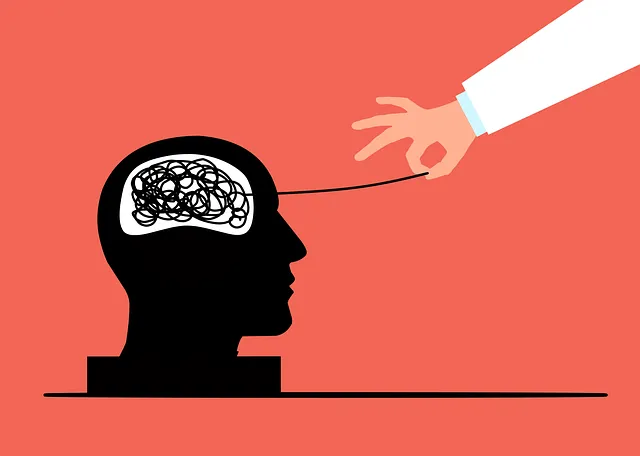Littleton Kaiser Permanente prioritizes cultural sensitivity in its mental health services, recognizing diverse patients' unique backgrounds as key to effective treatment. They implement staff training, open dialogue, and culturally responsive practices to enhance patient outcomes. This approach, coupled with burnout prevention workshops, improves engagement, satisfaction, and clinical success. By addressing cultural variations in diagnosis, adapting evidence-based practices, and cultivating emotional intelligence, they ensure tailored care. Continuous diversity education, public awareness campaigns, and mindfulness meditation further strengthen their inclusive environment and community health.
Cultural sensitivity is an essential aspect of providing effective mental healthcare, especially in diverse communities like that served by Littleton Kaiser Permanente. This article explores the impact and challenges of cultural sensitivity in mental health practice at this institution. We examine strategies to enhance cultural competence and highlight successful case studies. By understanding the unique needs of patients from various cultural backgrounds, mental health professionals can improve patient outcomes and foster inclusive care, as demonstrated by Littleton Kaiser Permanente’s approach.
- Understanding Cultural Diversity in Mental Healthcare at Littleton Kaiser Permanente
- The Impact of Cultural Sensitivity on Patient Outcomes
- Challenges Faced by Mental Health Professionals in a Multicultural Environment
- Strategies to Enhance Cultural Competence within the Practice
- Case Studies: Successful Implementation of Cultural Sensitivity at Littleton Kaiser Permanente
Understanding Cultural Diversity in Mental Healthcare at Littleton Kaiser Permanente

At Littleton Kaiser Permanente mental health services, recognizing and understanding cultural diversity is a cornerstone of their approach. This community-based healthcare provider realizes that effective treatment requires an awareness of the unique cultural backgrounds, beliefs, and values of each patient. For instance, what constitutes a healthy self-care routine development for better mental health can vary significantly across different cultures. What’s considered therapeutic in one culture might be seen as inappropriate or even harmful in another.
Therefore, Littleton Kaiser Permanente has implemented empathy building strategies to foster an inclusive environment. This involves training staff on cultural sensitivity, encouraging open dialogue about differences, and integrating culturally responsive practices into therapy sessions. By embracing these initiatives, the organization aims to improve patient outcomes and ensure that everyone receives care tailored to their specific needs, promoting overall well-being in a diverse society.
The Impact of Cultural Sensitivity on Patient Outcomes

In the realm of mental healthcare, cultural sensitivity is a game-changer that significantly impacts patient outcomes, particularly in diverse communities like Littleton Kaiser Permanente. When mental health professionals are attuned to their patients’ cultural backgrounds, beliefs, and values, they can offer more personalized and effective treatment plans. This nuanced approach ensures that individuals from various ethnic, racial, and socio-cultural groups receive care that respects their unique needs and challenges. For instance, a patient’s experience of stress or anxiety might be influenced by their cultural context, family dynamics, and community support systems, all of which should be considered during therapy sessions.
By integrating burnout prevention strategies for healthcare providers, such as Stress Management Workshops organized by Littleton Kaiser Permanente, mental health professionals can enhance their own well-being while maintaining sensitivity to cultural differences. Burnout prevention is vital to ensuring that caregivers remain effective and compassionate, thereby fostering a supportive environment where patients feel understood and empowered. This, in turn, leads to improved patient engagement, higher satisfaction rates, and better clinical outcomes, reflecting the organization’s commitment to delivering culturally sensitive mental health services.
Challenges Faced by Mental Health Professionals in a Multicultural Environment

In a multicultural environment like that seen in many modern societies, mental health professionals at Littleton Kaiser Permanente face unique challenges. One significant hurdle is the need to provide culturally sensitive care, ensuring that services are accessible and effective across diverse populations. This requires an understanding of not just the individual’s mental health issues but also their cultural background, traditions, and beliefs, which can influence how they perceive and express distress. For instance, what may be considered normal anxiety in one culture could manifest differently in another, affecting diagnostic accuracy and treatment planning.
Another challenge is adapting evidence-based practices to respect diverse needs. Techniques like Mood Management and Social Skills Training, often crucial for effective therapy, must be culturally adapted to avoid cultural missteps. Additionally, cultivating Emotional Intelligence among healthcare providers is essential, enabling them to recognize and appreciate the impact of cultural differences in their interactions with patients. This involves continuous learning about various cultural contexts, which can enhance patient trust and satisfaction, ultimately leading to better mental health outcomes.
Strategies to Enhance Cultural Competence within the Practice

To enhance cultural competence in mental healthcare, professionals at Littleton Kaiser Permanente mental health services can employ several strategies. One effective approach is to embrace diversity training and education. This involves continuous learning about various cultural backgrounds, beliefs, and practices, ensuring that all staff members are well-versed in how these factors might influence mental health experiences. Such training can be facilitated through workshops, webinars, and cross-cultural case studies.
Additionally, integrating public awareness campaigns focused on mental wellness and mindfulness meditation into the practice’s routine can foster a more inclusive environment. These initiatives not only promote open conversations about mental health but also empower individuals from diverse cultural backgrounds to find common ground and share unique perspectives. By incorporating these strategies, Littleton Kaiser Permanente can better serve its diverse community, ensuring that every patient receives culturally sensitive and effective mental healthcare.
Case Studies: Successful Implementation of Cultural Sensitivity at Littleton Kaiser Permanente

At Littleton Kaiser Permanente mental health services, the successful implementation of cultural sensitivity has been a game-changer. Through dedicated training and education programs, healthcare professionals have learned to navigate the intricate tapestry of diverse patient backgrounds, ensuring every individual receives care tailored to their unique needs. This shift in practice has fostered better communication strategies, significantly enhancing the effectiveness of crisis intervention guidance.
For instance, by incorporating cultural sensitivity into depression prevention initiatives, the hospital has seen a notable decline in recurrent cases. Healthcare providers are now equipped with tools to address systemic barriers and understand the impact of social determinants on mental health. This holistic approach not only improves patient outcomes but also creates a more inclusive environment, reflecting the diverse community it serves.
Cultural sensitivity is a cornerstone of quality mental healthcare, as evidenced by Littleton Kaiser Permanente’s successful implementation strategies. By understanding and addressing cultural diversity, improving patient outcomes becomes more achievable. Mental health professionals in multicultural environments face challenges but can overcome them through enhanced cultural competence. Adopting these strategies ensures that everyone receives care tailored to their unique background, fostering a more inclusive and effective mental healthcare system at Littleton Kaiser Permanente and beyond.






